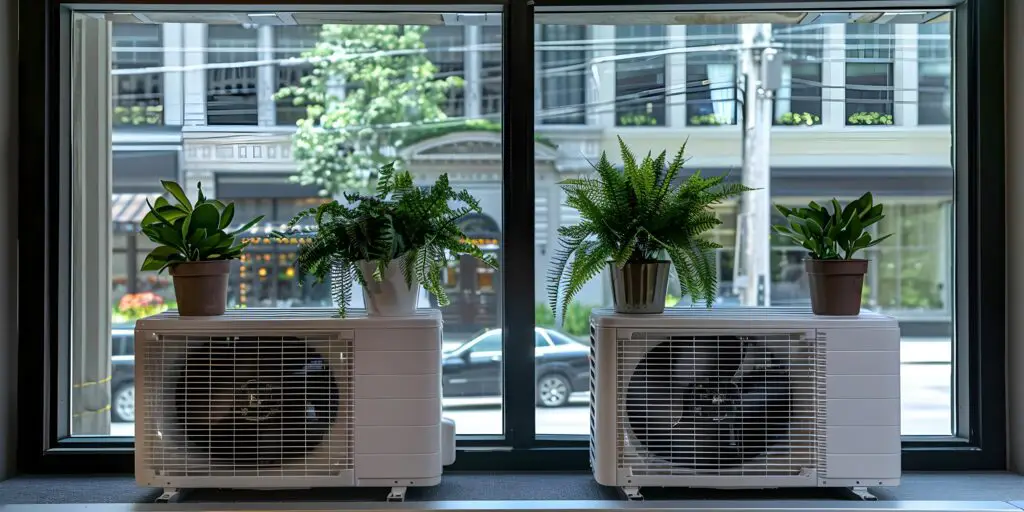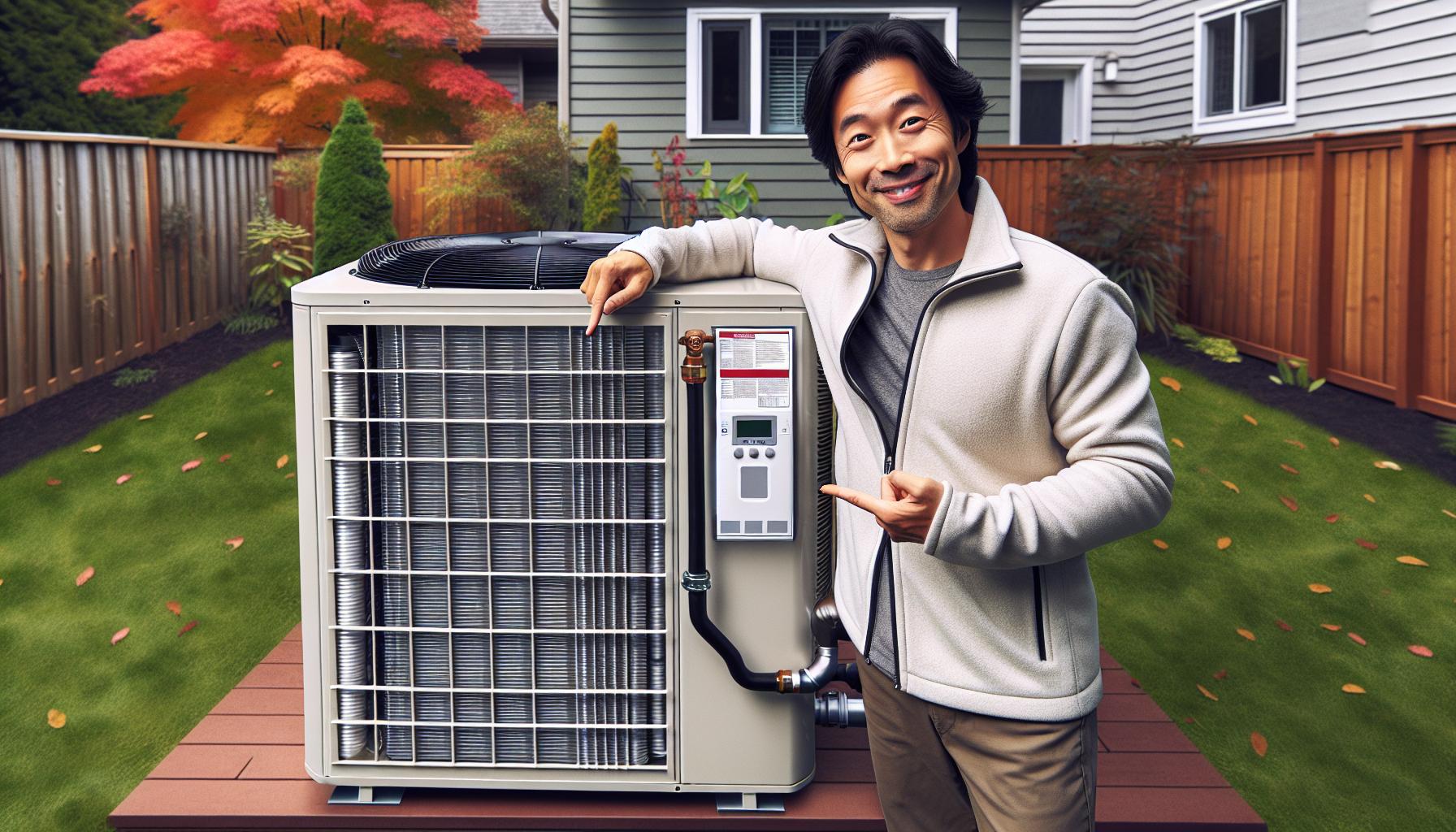Imagine this: It’s a scorching summer day, and you’ve just stepped into an air-conditioned room. Instant relief, right? But amidst the cool comfort, have you ever stopped to wonder, “Is air conditioning bad for me?”
You’re not alone in asking. With rising global temperatures, we’re relying on air conditioning more than ever, making it a hot topic of debate. This article aims to shed some light on the potential health impacts of air conditioning, backed by scientific research. So, before you crank up that AC dial, let’s investigate into the pros and cons, and uncover the truth behind the chill.
Understanding Air Conditioning and Health

Let’s dive right into the specifics under this main topic: Air Conditioning and Health.
The Basics of Air Conditioning
Air conditioning, often simplified to AC, fundamentally alters the properties of air to ensure comfort in interior spaces. It primarily modifies temperature and humidity levels, converting warm air into cooler air. Devices that perform this operation—commonly referred to as air conditioners—are found in various sizes, from small units suitable for single rooms to larger, central models capable of cooling entire buildings.
Modern AC units typically consist of three major components: the condenser, the compressor, and the evaporator. These components work in a continuous cycle, drawing in warm air, dehumidifying and cooling it, and then discharging the cooled air back into the environment.
So that’s the barebones picture of how air conditioners function. Now, let’s pivot towards the core matter in hand: the health concerns associated with these devices.
Health Concerns Linked to HVAC Systems
HVAC systems, shorthand for Heating, Ventilation, and Air Conditioning, have been subject of several health-related discussions. Prominent amongst these health concerns is the possibility of respiratory issues. Air conditioners by their very nature circulate and recycle air within a defined space. If this air contains toxins, allergens, or pathogens, they can be inadvertently spread throughout the environment, potentially triggering respiratory illnesses.
A report published by the US Environmental Protection Agency (EPA) suggested the chances for indoor air pollution are 2 to 5 times higher than outdoors. This can be particularly concerning for those with existing respiratory conditions, such as asthma. A comprehensive study by a renowned institution would show that about 8% of the world’s population suffers from asthma, and indoor air pollution can escalate their condition extensively.
Also, AC units often extract moisture from air, creating drier conditions. This can result in multiple physical discomforts such as dry skin and dehydration, exacerbating conditions like eczema or psoriasis.
Apart from these specific health concerns, studies imply that prolonged exposure to air conditioning can hinder the body’s natural response to heat, interfering with heat regulation over time.
That’s your quick glimpse into the health concerns related to air conditioners and HVAC systems. While these systems can unquestionably contribute to comfortable living environments, it’s essential to balance this comfort against potential health impacts. So, HVAC systems, boon or bane? It’s all about the way you make use of them.
Research on the Impact of Air Conditioning
Air conditioning influences our health in diverse ways. More than just climate regulation gadgets, these devices have been the subject of numerous studies examining their health impact. In spotlight are effects on respiratory health and skin-eye irritation levels.
Studies on Respiratory Issues
An American Journal of Epidemiology study (2000) focused on the respiratory effects of air conditioning, drawing intriguing results. Carrying out lung function tests on 100 participants, the research revealed that measures of Forced Vital Capacity (FVC) and Forced Expiratory Volume in one second (FEV1) were significantly lowered amongst individuals in air-conditioned environments, indicating a potential hazard for lung function.
Besides, a 2014 research paper entitled “Effects of Air Conditioning on Health: A Review” reported the airborne transmission of diseases including Legionnaire’s disease, a severe form of pneumonia due to inhalation of Legionella bacteria from conditioned air.
Another significant consideration involves the cycling of air. Air conditioners recycle indoor air, potentially increasing the concentration of airborne contaminants. Research shows that pollutants such as Volatile Organic Compounds (VOCs), often found in common household items, can prove detrimental to respiratory health.
| Research | Findings |
|---|---|
| American Journal of Epidemiology Study (2000) | Lowered FVC and FEV1 in air-conditioned environments |
| Effects of Air Conditioning on Health: A Review (2014) | Possibility of airborne disease transmission |
| Various studies on indoor air quality | Increased concentration of airborne pollutants in AC environments |
Skin and Eye Irritation in Air-Conditioned Environments
Air conditioning may lead to skin and eye discomfort, according to numerous studies. For instance, the 2007 study “Effects of Air Conditioning on the Human Nasal Cavity” described nasal discomfort and dryness as prevalent issues among people in air-conditioned environments.
Also, a study in the International Journal of Dermatology (2015) detailed the possibility of dry skin conditions worsening due to air conditioning, because of low moisture levels in conditioned air.
The same goes for eyes. A Journal of The Medical Association of Thailand study (2010) informed of the frequent occurrences of dry eye syndrome in office workers, attributing a significant part of the condition to the long-term exposure to air conditioning.
These findings suggest that while air conditioners ostensibly grant comfort, careful and informed use is essential for optimal health.
| Research | Findings |
|---|---|
| Effects of Air Conditioning on the Human Nasal Cavity (2007) | Prevalence of nasal discomfort and dryness |
| International Journal of Dermatology Study (2015) | Potential worsening of dry skin conditions |
| Journal of The Medical Association of Thailand Study (2010) | Frequent dry eye syndrome in office workers exposed to AC |
Benefits of Air Conditioning

Moving from a discussion on the potential disadvantages of air conditioning, we pivot to explore the numerous benefits it provides.
Comfort and Productivity
Air conditioning systems work wonders in maintaining a comfortable indoor temperature, irrespective of what the thermometer outside reads. Feel a tad hot? Dial down the thermostat. Getting chilly? Crank it upwards a notch. Air conditioning units afford you the convenience to customise your indoor environment at the touch of a button.
This ease has far-reaching benefits. For instance, when the heat of summer hits hard, your productivity levels can plummet. Heat-related discomfort, leading to exhaustion, is a key factor for productivity decline. A study by Berkeley Lab reveals that once the temperature hits 27°C (80.6°F), an individual’s productivity drops by 2% for each degree increase. Conversely, adhering to a steady temperature of around 22°C (71.6°F) via air conditioning amplifies productivity, ensuring tasks get done more efficiently.
Air Quality and Allergen Reduction
Air conditioning offers not just a cooling effect but also an improvement to the overall air quality within an indoor space. How, you wonder? On absorbing hot air from your room, the unit passes it over refrigerant coils, and in return, pushes out cold, filtered air.
The robust filtration system installed in most air conditioning units aids in reducing common indoor allergens such as dust, pet dander, and mould spores, by trapping them in the filter. A scientific report from the Journal of Fungi, exemplifies, documenting a lesser prevalence of fungi in air-conditioned homes compared to those without the system.
Beyond just allergens, air conditioning systems play a decisive role in reducing harmful pollutants. The US National Library of Medicine published a paper confirming that air conditioning can decrease indoor volatile organic compounds (VOCs) concentration by up to 52%.
While air conditioning is associated with potential health concerns, it’s clear that when used smartly, it is advantageous. Whether it’s anchoring productivity in the face of blistering heat or keeping your indoor ecosystem allergen-free, the benefits of air conditioning are indeed, numerous.
Mitigating the Negative Effects
After highlighting the potential health concerns and advantages of air conditioning systems, our focus now shifts to defining methods through which you can dilute the adverse effects. Let’s investigate deeper into the recommended practices to ensure you derive maximum benefits from your air conditioning unit.
Regular Maintenance Best Practices
Taking good care of your unit plays an essential part in preventing unwanted health conditions. Regular maintenance goes beyond increasing the longevity of the unit. It ensures a significant decrease in indoor air pollutants, thereby improving the respiratory environment. Consult an HVAC professional to evaluate and clean the system periodically, ideally twice a year. Always replace filters at stipulated times as a clogged filter can exacerbate respiratory problems.
When cleaning, pay attention to air ducts. They can gather dust, mould, and a plethora of other pollutants disrupting the air quality. Cleaning the air ducts improves the efficiency of the unit and our respiratory health.
Also, check for any potential leaks in the unit or the house. Leaks can cause the unit to overwork, leading to excessive drying of the air, one of the prime culprits for dry skin.
Choosing the Right System and Settings
Without a doubt, the type of air conditioning unit and its settings play a crucial role in circumventing health hazards. When choosing a unit, consider various factors such as room size and insulation, the system’s energy efficiency and filtration technology.
Units with a high efficiency particulate air (HEPA) filter are recommended as these filters can trap small pollutants – a handy feature for individuals with respiratory conditions. Also, units with built-in humidifiers can tackle air dryness, a common issue with air conditioned environments.
When it comes to settings, keeping a moderate temperature around 23-26°C is recommended. Even though you might be tempted to crank up the AC on hot days, a chillier environment can cause the body to lose heat faster than it produces, leading to thermal discomfort. More importantly, opt for a relative indoor humidity level between 30-50% to prevent skin dehydration and respiratory irritations.
In essence, it’s not always the case that air conditioning is bad for you. Rather, it’s about making informed decisions about maintenance, choice, and settings of your unit. Balancing these factors can help in mitigating any potential negative impacts while enjoying the comforts of a cooled environment.
Conclusion
So, is air conditioning bad for you? Not necessarily. It’s all about how you use and maintain it. The potential respiratory issues, skin dehydration, and indoor air pollution can be mitigated with the right practices. Regular cleaning of air ducts and replacing filters can significantly reduce these risks. Opting for systems with HEPA filters and keeping a moderate temperature and humidity level can further enhance your indoor air quality. Remember, your air conditioning system can be a boon for comfort and productivity, as long as you’re making informed decisions about its maintenance, choice, and settings. With a bit of care, you can enjoy the benefits of a cooled environment without compromising your health.






